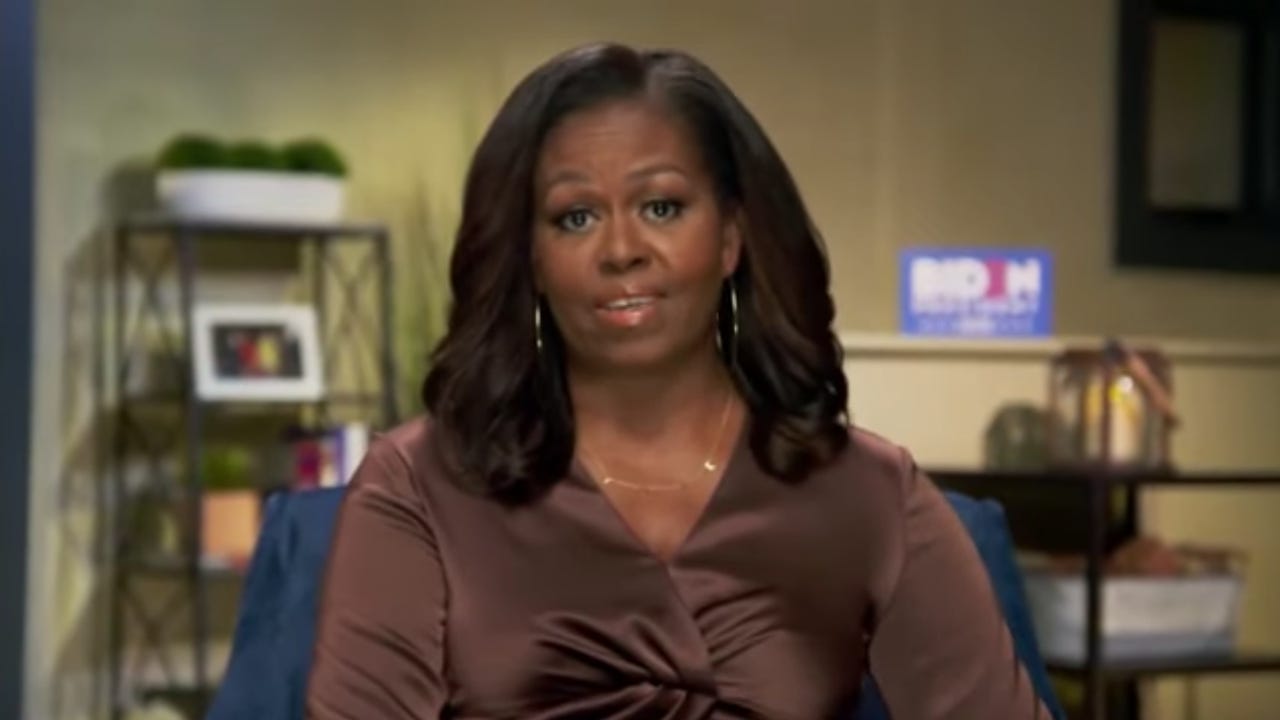The DNC convention: A webcasting veteran weeps

Not quite conventional?
I know I'm supposed to get excited about political conventions.
But I'm not fond of two-party systems and convention is such a painful word. It suggests, well, something conventional. And after a hard day's work, you want to convene with those you love, not those who conventionally twist the truth whenever it's expedient. (Which is usually Monday to Friday.)
Currently, it's the turn of the Democratic Party to see if it can bend technology to its purposes. It's being forced by the coronavirus to do something unconventional. It's holding a so-called virtual event, hosted by Eva Longoria and starring Michelle Obama.
Perhaps you're already uplifted by new change you can believe in. Or perhaps you prefer to imagine a swamp that needs to be newly drained, after being unaccountably filled with the same old gators. But can virtuality bring something new to your feelings and opinions?
There are those in the tech sphere who are unusually fascinated by the Democrats' virtual efforts. After all, we seem to be virtual beings these days. Are there specific things this virtual convention is doing well?
David Pitta is CMO of webcasting company BrightTALK. He has 15 years experience in this virtual event thing. And I detect watching the DNC brought tears to his eyes. But not entirely of joy.
He did see positives in the Democrats' efforts: "Never before have we heard so many voices from American people. This is usually an event where 50 speakers -- representatives, senators, mayors, entertainers, athletes, and union presidents -- step up to a podium and tell stories designed to get the in-person audience applause. Instead, the stories we hear in this event are designed to draw the emotion of a virtual audience. Nearly all Americans have become used to seeing our friends, family, colleagues, educators, and leaders via webcams. It feels authentic in today's world."
So this is good, right?
"Oddly enough, the highly produced video shown on Monday night feels the opposite," said Pitta.
Oddly enough, Pitta's heart was bursting with concerns. He said: "The big winners are the streaming platforms of Google, Amazon, Facebook, and Twitter. These platforms will find hundreds of millions of dollars dumped into advertising campaigns. Both parties will battle to reach their audience and the audience of each other. It will create more friction in our election process, as these platforms struggle to maintain a balanced approach in advertising."
There's a book I'd like to write: The Art of Facebook's Balanced Approach.
Surely, though, the sheer virtuality of the convention will broaden the reach of the party's message.
"While the headlines claim the DNC and RNC conventions will be 'virtual,' this was far from a virtual event," said Pitta. "A virtual event is one that brings together an audience. One that allows participation from the content creators and the audience. Instead, the audience was distributed to different platforms with varying degrees of participation. But not one that brings everyone together into a shared experience."
If we can't simultaneously kumbaya, can we be said to be together at all? For Pitta, one big problem is that the divided nature of the event means it's harder to drive action.
"Whether that action is to encourage viewers to register to vote, donate, or rally with your 'tribe,' the lack of next steps via a divided experience is a lost opportunity," he said.
But didn't Michelle Obama's necklace say it all? "Vote," it said.
It must be hard for a long-time expert to suddenly see what he regards as basic weaknesses in his area of expertise being displayed at such a scale.
Still, Pitta has a suggestion for the Republicans when they hold their event: They should listen to everything he said about the Democrats. From a programming point of view, that is.
He says reach can, of course, be helpful but only to a point.
"A single experience can unite voters and provide an opportunity for you to own the first-party data of your audience," Pitta explained. "This alone may be a competitive edge in this election process."
Pitta also believes an air of positivity would help. Has he seen Twitter lately? Or any well-known Twitter feeds?
I asked him whether he'd be prepared to help the Republicans with their virtual efforts. He offered a highly measured response. You know, the high-falutin' stuff about wanting all parties to reach their constituencies. (It's called business.)
But I can hear you mumbling: "Is he a Republican or a Democrat?"
It's not a question I'd normally ask. But for you, anything.
Pitta's response you may find coy: "When I work for BrightTALK I'm neither red nor blue. But when I vote on the ballot it means nothing to you."
That brings everyone together, doesn't it?
